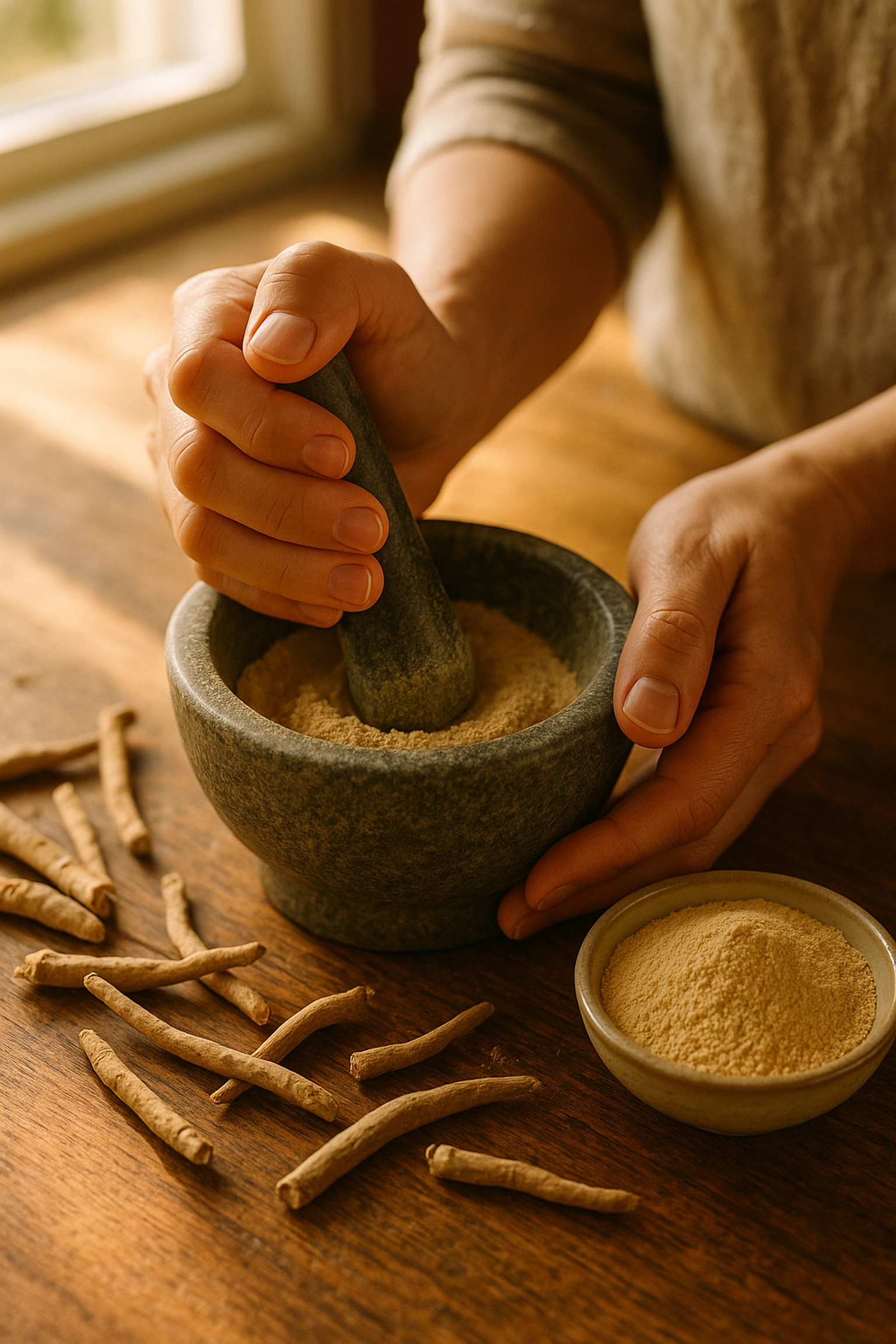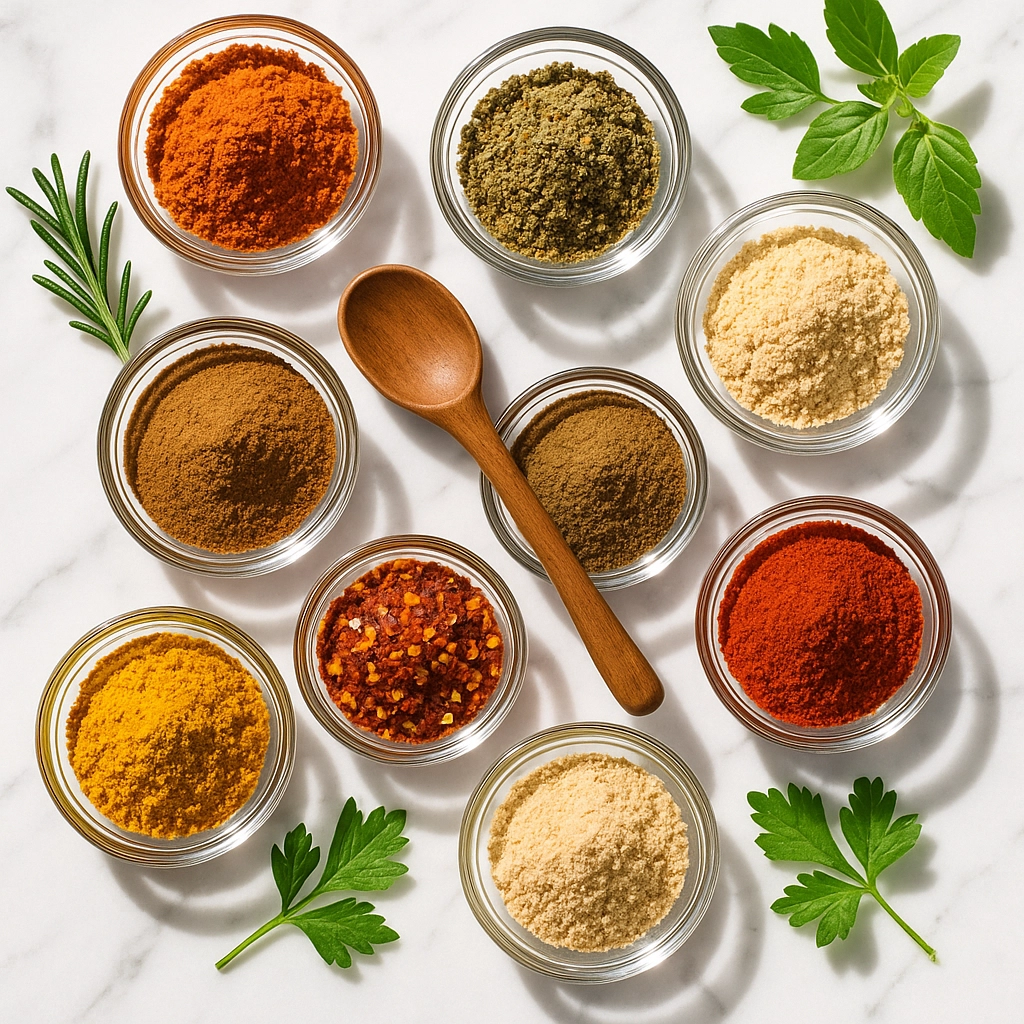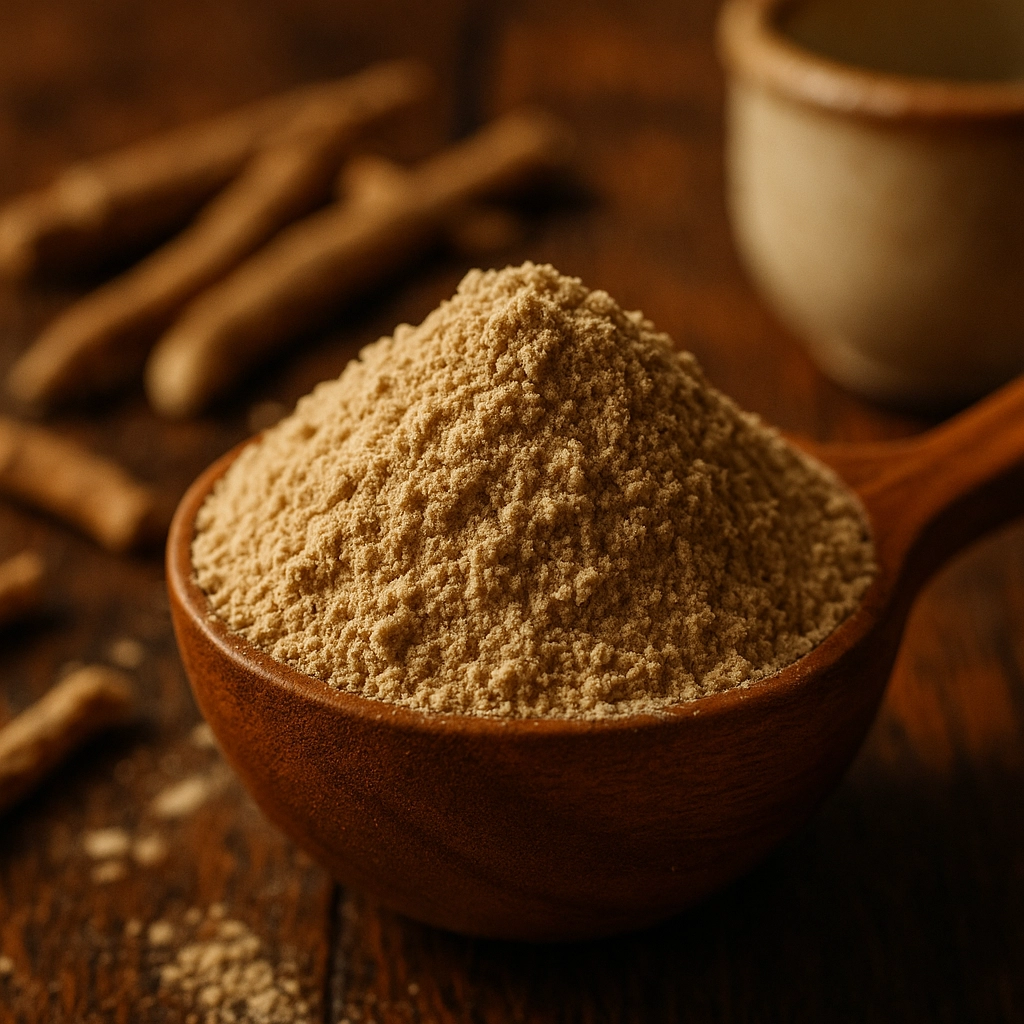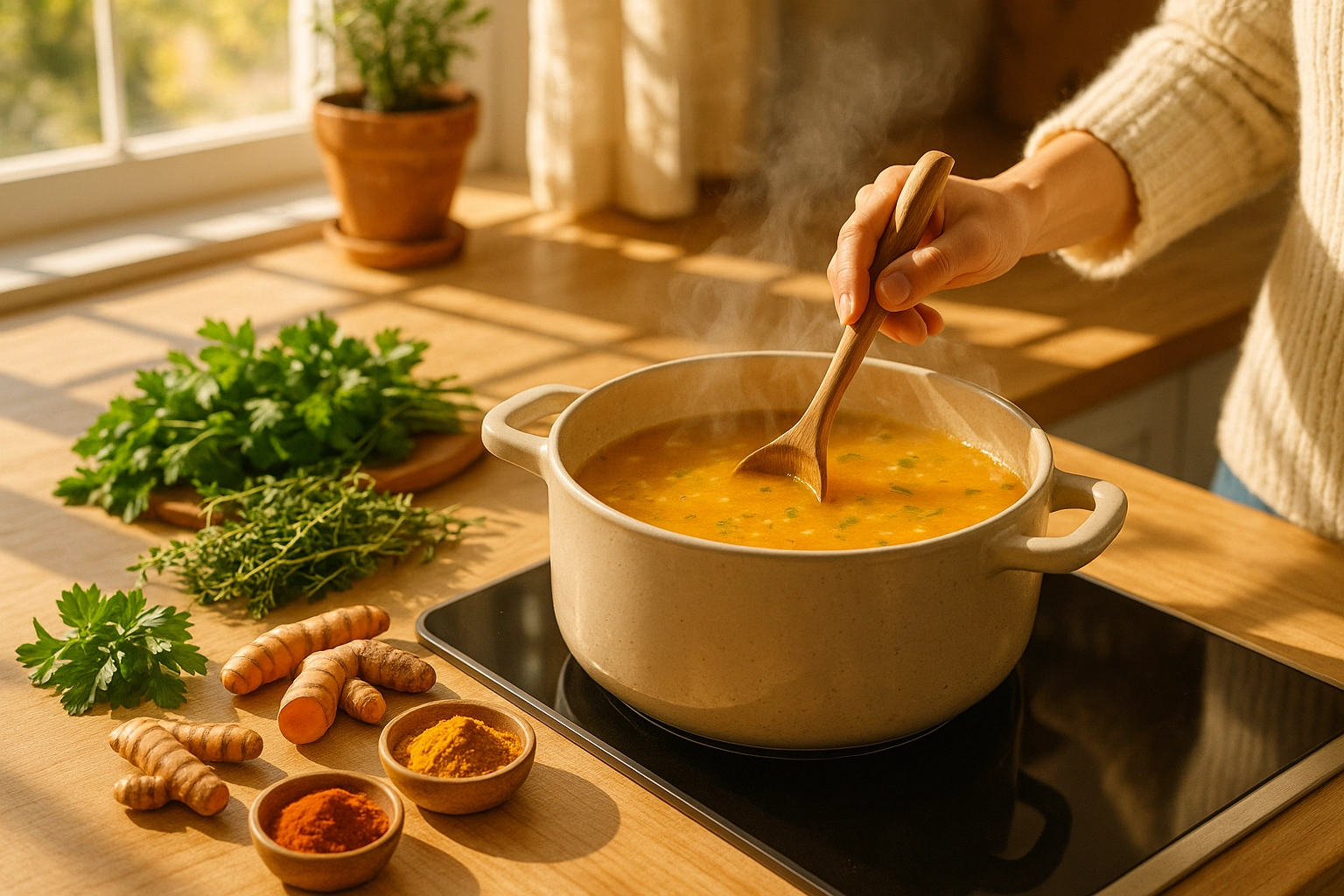Ashwagandha vs Regular Seasonings: Which Actually Reduces Your Stress While Cooking?
- onnie30
- Sep 8
- 5 min read
Ever notice how some days in the kitchen feel therapeutic while others leave you more frazzled than when you started? The secret might be hiding in your spice cabinet. While we've all heard that cooking can be relaxing, the ingredients you choose can actually make a measurable difference in your stress levels.
Today we're diving into something fascinating: how ashwagandha stacks up against your regular seasonings when it comes to actually reducing stress while you cook. Spoiler alert, the results might surprise you.
What Makes Ashwagandha Different From Your Average Spice?
Ashwagandha isn't just another trendy ingredient. This adaptogenic herb has been used in traditional medicine for thousands of years, and modern science is finally catching up with what ancient practitioners knew all along.
Unlike regular seasonings that primarily affect taste and aroma, ashwagandha works at a cellular level. It helps your body manage cortisol, that pesky stress hormone that tends to spike when life gets overwhelming. When you incorporate ashwagandha into your cooking routine, you're not just adding flavor. You're giving your nervous system a gentle nudge toward relaxation.

The magic happens through something called the hypothalamic pituitary adrenal axis. Sounds complicated, but think of it as your body's stress management headquarters. Ashwagandha helps regulate this system, making you more resilient to daily stressors. Regular seasonings, while delicious, don't have this same physiological impact.
How Regular Seasonings Support Your Mood
Now, before you toss all your regular spices, let's give credit where it's due. Traditional seasonings like cinnamon, turmeric, ginger, and cardamom do contribute to your wellbeing, just in different ways.
The act of cooking with aromatic spices engages your senses in a way that can be genuinely calming. That warm, familiar scent of cinnamon can trigger positive memories and create a sense of comfort. Turmeric brings anti inflammatory benefits that support overall health. Ginger can soothe digestive issues that often worsen with stress.
These spices work through what we might call the "comfort pathway." They don't directly lower cortisol levels like ashwagandha does, but they create an environment of sensory pleasure that can help shift your mental state. It's like the difference between taking a targeted supplement and enjoying a warm hug.
The Science Behind Stress Reduction Through Cooking
Cooking itself is a form of mindfulness practice, whether you realize it or not. When you're focused on chopping vegetables, measuring spices, or stirring a pot, you're naturally practicing present moment awareness. This helps activate your parasympathetic nervous system, which is responsible for rest and relaxation.

The key difference emerges when we look at ingredient choice. Using ashwagandha in your cooking creates a double benefit. You get the mindfulness benefits of the cooking process plus the adaptogenic benefits of the herb itself. Regular seasonings give you the mindfulness piece but miss the direct physiological support.
Research shows that people who cook regularly report lower stress levels and better mood regulation than those who don't. But here's what's interesting: the specific ingredients you use can amplify these benefits significantly.
Why Nutrient Density Matters for Your Mental Health
Your brain is an incredibly demanding organ. It uses about 20% of your daily calories and requires a steady supply of specific nutrients to function optimally. When you're stressed, these nutritional needs increase even more.
Ashwagandha provides concentrated compounds called withanolides that directly support your body's stress response. Compare this to regular seasonings, which might offer some antioxidants and minerals but don't provide targeted stress support compounds.
Think of it this way: regular seasonings are like having a pleasant conversation with a friend when you're stressed. It feels good and might help you feel better temporarily. Ashwagandha is like having that same conversation while also getting a therapeutic massage. Both approaches have value, but one addresses the problem more comprehensively.

Making the Practical Choice for Your Kitchen
So which should you choose? The answer isn't as black and white as you might expect. Your best bet is understanding when to use each option strategically.
For everyday cooking where you want maximum flavor and enjoyment, your regular spice collection is perfect. These familiar flavors make food taste amazing and create positive associations with cooking. There's real value in the sensory pleasure and comfort they provide.
For times when stress feels overwhelming or you're dealing with chronic anxiety, incorporating ashwagandha into specific dishes can provide targeted support. Think of it as adding a therapeutic element to your cooking routine rather than replacing everything else.
The beauty is that you can use both approaches together. Start your cooking session with some ashwagandha in a warming tea or incorporate it into a sauce, then use your favorite traditional spices to build flavor complexity.
Simple Ways to Start Cooking for Stress Relief
Ready to transform your kitchen into a stress relief sanctuary? Here are some practical approaches that work:
Create a pre cooking ritual. Before you start preparing food, take three deep breaths and set an intention for your cooking session. This simple practice helps shift your nervous system into a more relaxed state.

Choose one recipe per week that incorporates ashwagandha. This could be as simple as adding it to golden milk, mixing it into energy balls, or stirring it into soup. Consistency matters more than quantity when it comes to adaptogenic herbs.
Make your regular spices work harder for your wellbeing. Use warming spices like cinnamon and ginger when you're feeling anxious. Reach for cooling spices like mint and cilantro when you're feeling overwhelmed. Let your intuition guide these choices.
The Long Term Benefits of Mindful Seasoning
When you start paying attention to how different ingredients affect your stress levels, something interesting happens. You become more attuned to your body's needs and more intentional about your food choices overall.
This awareness extends beyond just stress management. You might notice that certain spices help with energy levels, sleep quality, or digestive comfort. Regular seasonings excel at providing these subtle, everyday benefits that support your overall quality of life.
Ashwagandha shines when you need more targeted intervention. During particularly stressful periods, job changes, relationship challenges, or major life transitions, having this adaptogenic support in your cooking repertoire can make a real difference in how you feel day to day.

Your Kitchen, Your Sanctuary
The truth is, both ashwagandha and regular seasonings have important roles in a stress reducing kitchen. Regular spices provide the foundation of enjoyable, comforting cooking experiences. They make food taste amazing and create positive emotional associations with time spent in the kitchen.
Ashwagandha adds a layer of physiological support that can help your body handle stress more effectively over time. It's not about choosing one or the other, but understanding how to use each strategically.
Your kitchen can be one of the most powerful tools you have for managing daily stress. By choosing ingredients intentionally and cooking with awareness, you're not just preparing food. You're creating medicine for both body and mind.
The next time you reach for your spice cabinet, consider what kind of support you need most. Sometimes it's the familiar comfort of cinnamon or the warming kick of ginger. Other times, it might be the steady, grounding support of ashwagandha. Trust your instincts, experiment with both approaches, and discover what works best for your unique stress relief needs.
![logo_white_background[1].jpg](https://static.wixstatic.com/media/8584e8_f5b8866e9f294586b76d754dc7459d11~mv2.jpg/v1/fill/w_255,h_109,al_c,q_80,usm_0.66_1.00_0.01,enc_avif,quality_auto/logo_white_background%5B1%5D.jpg)
Comments